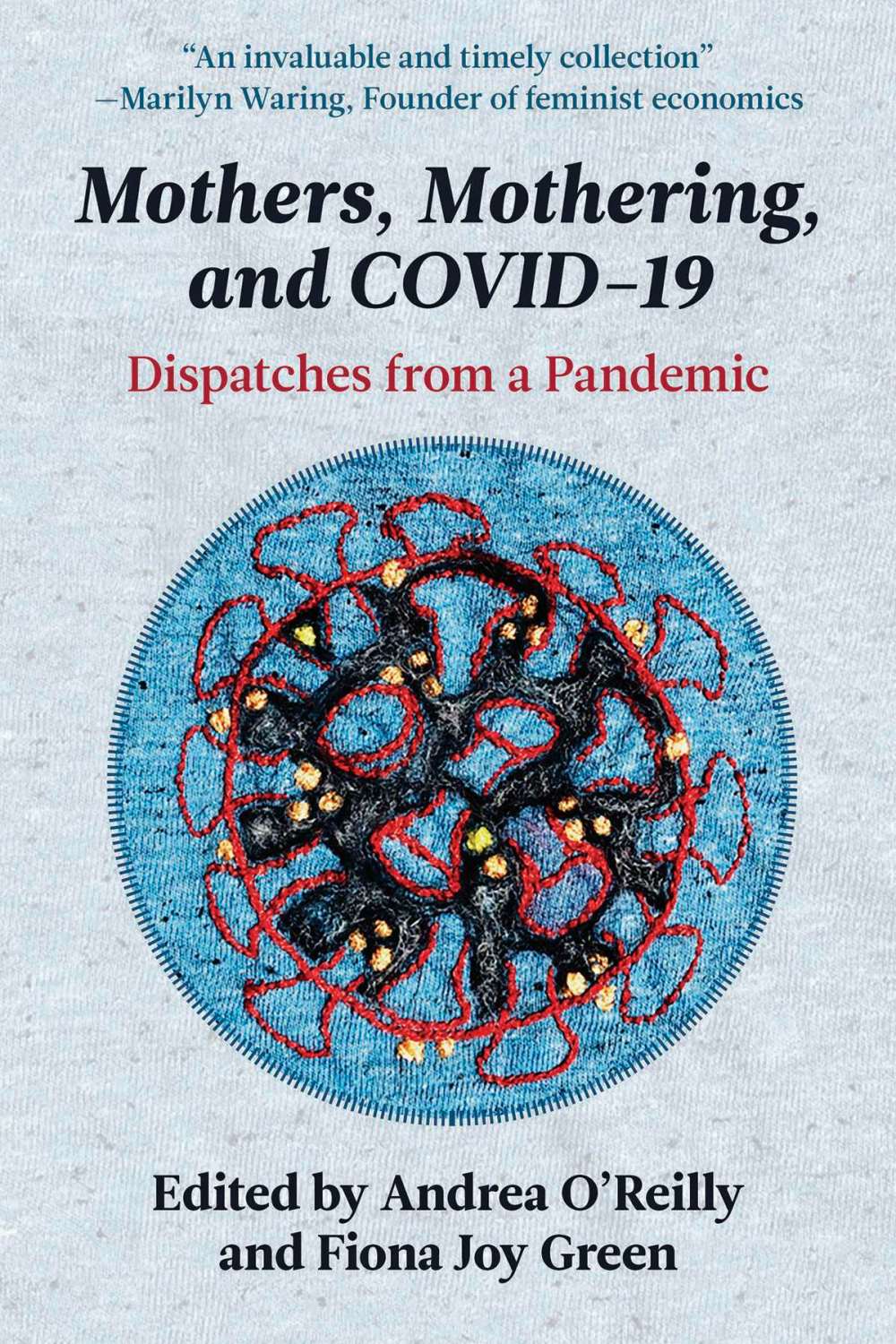New book explores pandemic mothering
Mothers are under-valued front-line workers
Advertisement
Hey there, time traveller!
This article was published 17/03/2021 (1779 days ago), so information in it may no longer be current.
Throughout the COVID-19 pandemic, an indispensible group of frontline workers has quietly continued to provide care that often goes unnoticed.
A new book called Mothers, Mothering And COVID-19: Dispatches from a Pandemic shares the experiences of mothers from around the world, including Indigenous women.
Fiona Green, a University of Winnipeg professor in the department of women’s and gender studies, co-edited the book with professor Andrea O’Reilly of York University.
Their 45-chapter compilation is divided into three sections — wage labour, carework and maternal health — that incorporate scholarly writing and other creative contributions from 70 authors and artists.
“The book seeks to address the disconnection between what is happening in homes across the world and what is being reported in the media,” Green said.
“We ask why motherwork, even during a pandemic, when it is so crucial, remains so devalued and invisible. Most urgently, we want to explore how mothers are managing and what can be done to better support them in this pandemic.
“We wish to detail the realities of self-isolation, physical distancing, as well as stay-at-home directives and their effect on families, mothers and children.”
It’s crucial to publish the experiences of mothers within the first year of the pandemic, Green said, since it documents some ways that COVID-19 has drastically changed life for mothers and their families.
“The often raw, passionate and moving reflections reveal how the unprecedented changes have included the need to respond to family dynamics that are under unparalleled stress and anxiety,” Green said.
“Along with scholarly research, these works point to the ability of mothers to recalibrate their life, relationships and responsibilities in ways that adapt to a rapidly evolving new normal. Moreover, the collection explores how mothers are coping with their own physical, mental and emotional health, as well as that of other family members during 2020.”
Throughout the pandemic, mothers have largely lacked acknowledgement for the essential work they do in their homes.
“Motherwork entails many, if not all, of the skills and labour associated with the list of front-line jobs and work,” she said.
“Mothers are responsible for feeding, clothing, educating, caring for and ensuring the hygiene, health and well-being of family members including children and elderly, while also often continuing to work in the labour force.”

Around the world, mothers experience an absurd overtaxing of their personal resources, she added.
“Of particular note is the impact of racism and white supremacy on the lives of racialized mothers and their families, as well as in the lives of immigrant mothers whose first language is not that of the country that they are living in,” she said.
“It is crucial to acknowledge the numerous resources and resilience that Black, Indigenous and mothers of colour have when contending with the intersectional consequences of racism and sexism in the midst of the overwhelming work of mothering.”
The situation of intensive mothering expected before and during the pandemic is unnatural and unsustainable, she added.
“When there is no separation between work, family and home, pressure inevitably builds, and we need to be asking what toll this is taking on mothers and how as a society we can support mothers and their essential service of caregiving,” she said.
“One opportunity presented by the COVID-19 pandemic is visibility, as it has brought the role of gender in society sharply into focus. It is important for employers to accommodate in real time the impacts the COVID-19 pandemic has had in terms of the intersection of gender and maternality.”

Significant research is currently underway to examine the pandemic and violence in the home, the pandemic’s effects on caregiving, and what constitutes essential work, she said.
“The pandemic presents a challenge to gender equity,” Green said, “and it provides new opportunities to confront the roles that gender plays in personal and professional lives.”
E-copies and paper copies of Mothers, Mothering And COVID-19: Dispatches from a Pandemic can be ordered through Demeter Press or through other book retailers such as Amazon.



